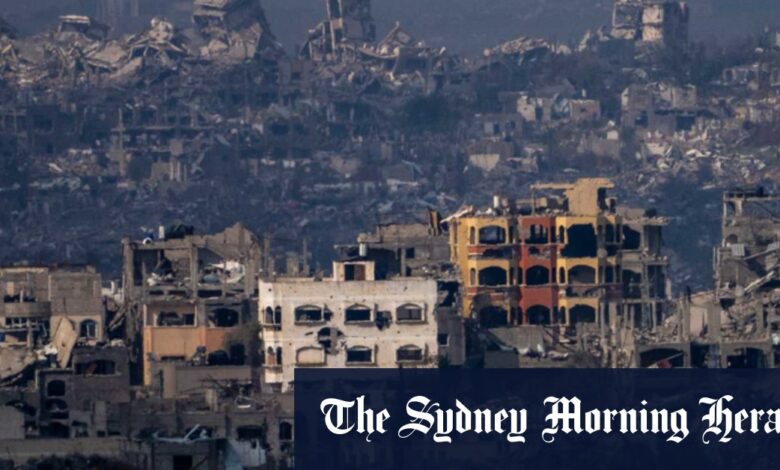Israel’s cabinet approves deal for Gaza ceasefire and hostage release

Israel responded with a devastating offensive that has killed over 46,000 Palestinians, according to local health officials, who do not distinguish between civilians and militants but say women and children make up more than half of those killed.
The conflict has destabilised the Middle East and sparked worldwide protests.
Fighting continued into Friday, and Gaza’s Health Ministry said 88 bodies had arrived at hospitals in the past 24 hours. In previous conflicts, both sides have stepped up military operations in the final hours before ceasefires as a way to project strength.
A three-phase deal
Under the deal, 33 of the hostages are set to be released over six weeks in exchange for Palestinians imprisoned by Israel. The 33 are women, children, men over 50 and sick or wounded people. Hamas has agreed to free three female hostages on Day 1 of the deal, four more on Day 7 and the remaining 26 over the following five weeks.
Netanyahu instructed a special task force to prepare to receive them, and said their families were informed a deal had been reached.
Loading
Israel’s justice ministry on Friday published a list of 95 Palestinian prisoners to be freed in the deal’s first phase and said the release will not begin before 4 p.m. local time Sunday. All on the list are younger people or female.
Israeli forces will pull back from many areas in Gaza, hundreds of thousands of Palestinians would be able to return to what’s left of their homes, and there would be a surge of humanitarian assistance.
Israel’s military said that as its forces gradually withdraw, residents will not be allowed to return to areas where troops are present or near the Israel-Gaza border, and any threat to Israeli forces “will be met with a forceful response.”
The remainder of the hostages, including male soldiers, are to be released in a second — and much more difficult — phase that will be negotiated during the first.
Hamas has said it will not release the remaining captives without a lasting ceasefire and a full Israeli withdrawal, while Israel has vowed to keep fighting until it dismantles the group and to maintain open-ended security control over the territory.
Longer-term questions about postwar Gaza remain, including who will rule the territory or oversee the daunting task of reconstruction.
An Egyptian official said an Israeli delegation from the military and Israel’s Shin Bet internal security agency arrived in Cairo on Friday to discuss the reopening of the Rafah crossing, a key link between the Gaza Strip and Egypt. An Israeli official confirmed a delegation was going to Cairo to discuss the crossing. Both spoke on condition of anonymity to discuss the private negotiations.
Objections to the deal in Israel
Israel’s hard-line national security minister, Itamar Ben-Gvir, has threatened to quit the government if Israel approved the ceasefire.
Ben-Gvir’s resignation would not bring down the government or derail the deal, but the move would destabilise the government at a delicate moment and could eventually lead to its collapse if Ben-Gvir were joined by other key Netanyahu allies.
AP
Get a note directly from our foreign correspondents on what’s making headlines around the world. Sign up for the weekly What in the World newsletter here.
https://static.ffx.io/images/$zoom_0.7602%2C$multiply_0.7554%2C$ratio_1.777778%2C$width_1059%2C$x_0%2C$y_0/t_crop_custom/q_86%2Cf_auto/t_smh_no_label_no_age_social_wm/b70fbdfab5c174f1fcb57c12a52baaade0e2608e
2025-01-17 17:33:14





